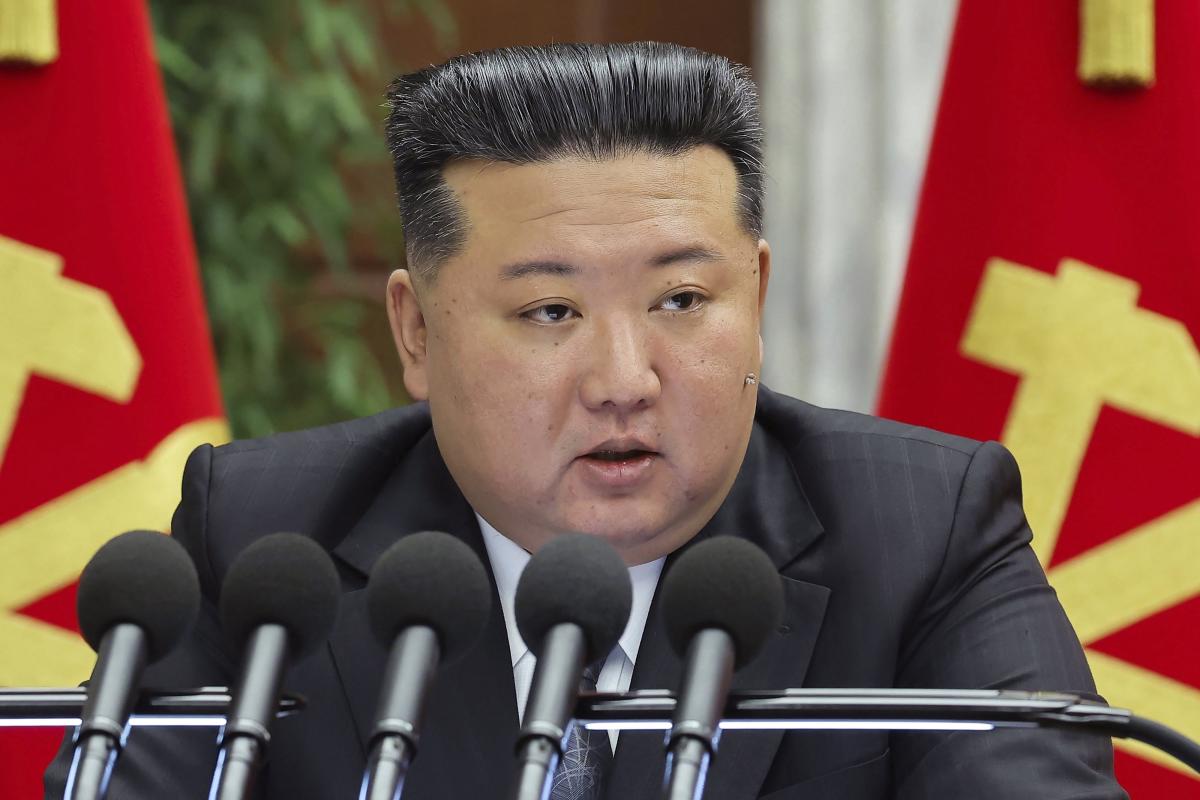
SEOUL, South Korea (AP) – On Tuesday, North Korea issued a sharp rebuke of the United States and its Asian allies, condemning their "ridiculous" goal of denuclearizing the nation. The North emphasized its determination to enhance its nuclear capabilities under the leadership of Kim Jong Un.
This declaration from Pyongyang’s Foreign Ministry followed a recent meeting among top diplomats from the U.S., South Korea, and Japan at a security conference in Germany, where they reaffirmed their commitment to strengthening military partnerships and enforcing international sanctions to counter North Korea’s nuclear ambitions.
In response, the North Korean ministry accused the U.S. of promoting an "outdated and absurd plan" aimed at disarming the country. It warned of possible "overwhelming and decisive counteractions" if it perceives any threats to its national security. The ministry declared its intention to "consistently adhere to the new directive of reinforcing nuclear forces" as outlined by Kim and pledged to ward off any threats to the nation’s sovereignty from the U.S. and its allies.
This latest statement is part of a continuing trend in North Korea’s rhetoric, characterizing U.S. policies towards Pyongyang as hostile. Notably, the North Korean state media has refrained from mentioning U.S. President Donald Trump directly, despite his previous unprecedented summits with Kim during his first term.
U.S. Secretary of State Mark Rubio recently held discussions with his South Korean and Japanese counterparts in Munich, reiterating their commitment to achieving the complete denuclearization of North Korea while maintaining a robust sanctions regime against its weapons program. The three countries also agreed on enhancing their defense and deterrence strategies, which includes increasing joint military exercises and fortifying Japan and South Korea’s military capabilities, as indicated in a joint statement issued post-meeting.
Challenges for Quick Resolutions
Despite three high-profile meetings between Trump and Kim in 2018 and 2019, diplomatic efforts quickly deteriorated due to disagreements over the cessation of U.S.-led sanctions in exchange for North Korean disarmament. Following this breakdown, North Korea has suspended meaningful dialogues with Washington and Seoul, ramping up its missile tests and military demonstrations to counter perceived "gangster-like threats" from the United States.
Currently, Kim’s foreign policy efforts are heavily focused on strengthening ties with Russia, whom he has supported with arms and military resources to aid President Vladimir Putin’s invasion of Ukraine. Concerns have arisen in Seoul about the potential for Kim to obtain economic support and advanced technology in return for aiding Russia militarily.
According to the Korean Central News Agency, a diplomatic team led by Kim Ik Song, the director for diplomatic relations, departed for Russia on Monday for discussions, though details on the agenda remain undisclosed.
Speculation has emerged regarding Trump’s potential return to summit diplomacy with Kim following his electoral victory. However, many analysts believe a swift return to the dynamics of 2018 is improbable given the significant shifts in regional security and geopolitical landscapes since that time.
North Korea’s ongoing nuclear program increasingly intersects with larger global issues, particularly influenced by Russia’s conflict in Ukraine and deteriorating sanctions enforcement against Pyongyang.
Additionally, some experts suggest Kim’s quest to unify against the U.S. may gain momentum, especially if Trump’s renewed trade policies reignite tensions with China, North Korea’s primary ally and crucial economic partner.









